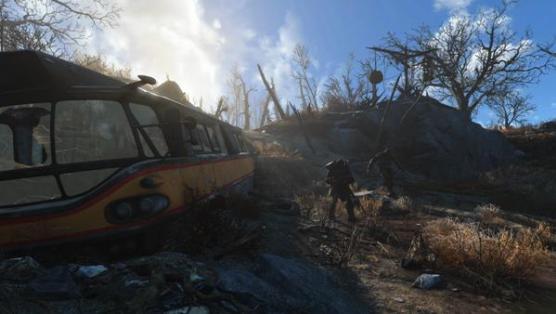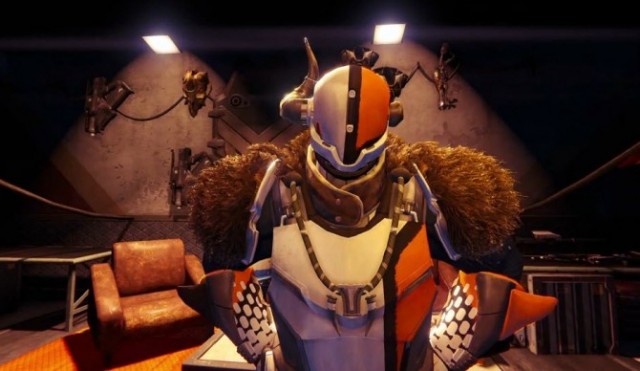

Waking up in the back of an ambulance. Throwing potatoes at a pig. Taking a trip down a mine shaft and ending up on a water slide. Yes, these things are connected, at least in Datura, the latest PSN release from the surreal minds at Poland-based developer Plastic. While it feels more like an interactive thesis presentation for someone’s psychology degree than a game, Datura has a sense of foreboding and mystery that we couldn’t shake, even after its abrupt ending.
In Datura’s opening, we found ourselves strapped to a gurney in the back of an ambulance. If we had a health bar, it would probably be low, but Datura is never that traditional. Instead, the game takes the opportunity to introduce your free-floating hand, which is used for interacting with the world’s puzzles. We pulled the heart rate sensors off our chest and received a defibrillator blast from a (seemingly) well-meaning nurse. That sent us down some sort of mental rabbit hole, into a silent, eerie forest.
These woods are the game’s main setting. We wandered about, Myst-style, encountering characters and objects that set off a series of brain-boggling events. There was a helpful pig, an aggro hunter and a mysterious little boy. Depending on our interactions with them and the world’s puzzles, the game promised different narrative paths to explore. Moments of choices were not obvious, and no matter how we behaved, there were some surreal left turns. One minute we were taking fire from a tennis ball launcher, the next we're in a WWI trench.
Datura goes out of its way to be unconventional. As far as narrative goes, it works. The game is full of unsettling moments and flat-out surprises. The controls are a different story - especially with the Move. Even with all the on-screen queues, something as basic as gripping and turning a door handle is like fumbling in the dark for a light switch. Often we were just reaching around, hoping the floating hand would grab what we wanted. Plastic is obviously going for immersion by way of the PlayStation’s magic wand, but totally misses the mark in that regard. The Move controls felt borderline broken. Thankfully, Datura has a far more serviceable DualShock control scheme, which basically saves the game.
We got a greater sense of immersion from a good set of headphones than any of the game’s motion controls. The wind in the trees, the buzz of flies, all the ambient noises of the forest built a strong sense of place. Leaf crunching footsteps and our own heavy breathing made us feel like we were the ones lost in the woods. The dramatic score and sharp musical queues also helped keep us engaged.
After great sound design, Datura’s second best surprise was an odd sense of humor. That pig we mentioned had a habit of showing up at random times, and some of the game’s transitions are so surreal all we could do was laugh. Datura would be too serious, morose even, without these moments. It makes for a strange, engaging tone that won us over.
Datura is short and easy to finish in one sitting. Some players may not like that you need to play it through multiple times to shake loose all of its secrets. Without that in mind, its ending may feel abrupt and frustrating. Plastic’s last release was Linger in Shadows. Another non-traditional title, it was like a cinematic cat’s cradle, meant to be wound back and forth and pulled apart at multiple angles. If you found that game to be at all intriguing (outside of its easy-to-attain trophy set), there’s a good chance you’ll enjoy Datura.
If this sort of game doesn’t sound appealing, no one can blame you. Datura is arty, a tad obtuse, and the clumsy Move controls don’t make it any more accessible. For more methodical, curious gamers, we recommend you download Datura, and play it with a DualShock. Moments from the game have a way sticking in your mind, calling you in for a replay. If you’re in the mood for something cerebral and weird, and can tolerate terms like “symbolic language” and “latent meaning,” Datura is worth your time.



